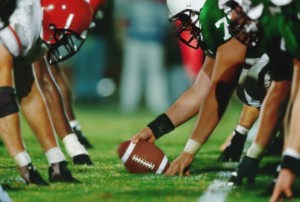 Recently we’ve been writing about concussion, especially repetitive concussion, and its effects on the brain. Awareness of these issues is growing as an increasing number of studies link concussion to serious medical conditions later in life. Naturally, those most susceptible to long-term damage are closely monitoring these studies.
Recently we’ve been writing about concussion, especially repetitive concussion, and its effects on the brain. Awareness of these issues is growing as an increasing number of studies link concussion to serious medical conditions later in life. Naturally, those most susceptible to long-term damage are closely monitoring these studies.
In July 2011, 75 former football players filed a lawsuit against the National Football League (NFL), claiming the NFL has known of the risk of long-term damage since the 1920s, but did not warn players or provide adequate protection. They also named Riddell, the league’s helmet manufacturer, in the lawsuit.
The NFL Study
In 1994, the NFL commissioned a study to better understand the risks faced by players on the field. In addition, Riddell used the data to improve their helmets and protective gear. Between 1996 and 2001, researchers analyzed reports on mild traumatic brain injuries (TBI) from team physicians and trainers. They also reviewed footage of plays believed to have caused a concussion and submitted the data to the NFL’s Committee on Mild Traumatic Brain Injury. The study found “no evidence of worsening injury or chronic cumulative effects” from mild TBIs – like the concussions typically sustained by players in the NFL.
The NFL announced the results of their study in 2004, but by 2010 they reversed this position in accordance with current medical data, stating that concussion can lead to dementia, chronic traumatic encephalopathy (CTE), memory loss and other neurological problems. All of the 75 players filing the lawsuit are claiming to be suffering health problems due to repeated TBI.
Traumatic Brain Injury Takes Time
While we are not speculating on the details and methods of the NFL’s study, current medical data suggests that damage from mild TBI can take a long time, even years, before its effects are fully realized. A player may appear to be healthy while retiring in their 30s but may develop signs of dementia in their 50s, which is a very young age for such a condition.
One need not have been a professional athlete to be at risk for brain damage from mild TBI. Dangers of concussion are faced by high school and amateur athletes as well. TBIs, whether during the Super Bowl or the Homecoming game, car accidents, falls, workplace injuries or for soldiers on the battlefield, all carry a potential risk for long-term neurological damage.
Contact Us
If you have suffered a concussion, you may be entitled to compensation. Contact us today, and tell us your story. Our attorneys specialize in brain related cases and offer a free consultation to help you determine your options.


